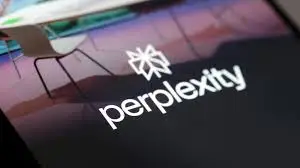In race to build Google Chrome rival, why Perplexity’s fresh funding is crucial

In the ever-evolving landscape of the internet, browser wars are nothing new. But in 2025, the competition is heating up once again — and this time, it’s not just about speed, privacy, or extensions. It’s about AI integration, search engine dominance, and personalized user experiences. At the center of this rising battle is Perplexity, a relatively new player that’s rapidly gaining attention — especially after its recent fresh round of funding. But why is this funding so significant, and could Perplexity truly challenge the dominance of Google Chrome?
The Battle for the Future of Browsing
Google Chrome currently dominates the browser market with over 60% global share. Its seamless integration with Google’s suite of services and superior performance have made it the default choice for millions. However, new user expectations, privacy concerns, and AI-enhanced tools are creating opportunities for innovation.
Perplexity, often referred to as an “answer engine,” has been reimagining the way people search and consume information. It combines natural language processing and real-time information retrieval to offer concise, accurate, and sourced answers — going beyond the traditional list of links.
With its latest funding injection, Perplexity is poised to build on this technology and enter the browser arena, offering a fresh, AI-first alternative to Chrome.
Perplexity’s Funding: A Strategic Milestone
Perplexity recently closed a $63 million Series B funding round, with backing from high-profile investors including Jeff Bezos and Nvidia. This funding isn’t just about scaling infrastructure — it’s a strategic signal. The company plans to:
- Invest in R&D to refine its AI models and browsing tools
- Expand its engineering and design teams
- Build a dedicated browser product with AI at its core
- Compete more directly with Google, Bing, and Edge
This round brings Perplexity’s valuation to over $1 billion, officially making it a tech unicorn — and a serious contender in the AI-browser race.
Why Chrome Is Vulnerable in 2025
Although Chrome remains a dominant force, it’s not invincible. Here’s why:
- AI lag: Chrome’s reliance on Google Search has limited its ability to integrate a more natural, conversational AI experience natively in the browser. While Google has launched Gemini, its implementation is still fragmented.
- Privacy concerns: Google has long faced criticism for data harvesting. Newer browsers like Brave, Firefox, and now Perplexity are capitalizing on users’ demand for greater control over personal data.
- Search evolution: The traditional search engine model — typing a query and sifting through links — is being challenged by AI-powered answer engines. Users now expect direct, summarized, contextual answers.
- Device diversification: Users are moving across platforms — from desktops to smartphones to wearables. Chrome’s integration works well within the Google ecosystem but feels clunky or limited elsewhere.
How Perplexity Plans to Differentiate
Perplexity’s potential lies in its fusion of browsing and search. Unlike traditional browsers, it could offer:
- AI-native interface: Imagine opening your browser and being greeted not by a search bar, but by an AI that understands your intent and context — like ChatGPT or Copilot, but purpose-built for the web.
- Contextual web exploration: Instead of just links, users would receive dynamic answers, verified sources, and real-time updates — all embedded in the browsing experience.
- Minimal tracking: Perplexity has emphasized privacy by design, with minimal data collection and user-focused experiences.
- Multimodal integration: With AI models increasingly able to process text, images, and video, Perplexity’s browser could evolve into a multimodal assistant, handling diverse content formats more intuitively than Chrome.
A Bigger Vision: Challenging Google Itself
Perplexity isn’t just aiming at Chrome — it’s eyeing Google’s entire search empire. By changing the way users access information, it indirectly threatens Google’s ad-driven business model.
Even Microsoft’s Copilot and OpenAI’s ChatGPT have started nibbling at Google’s dominance. But unlike them, Perplexity is positioning itself as a hybrid browser + answer engine + AI assistant — a combination that could redefine the web interface for the AI age.
Will Perplexity Succeed?
There are challenges, of course:
- User inertia: Getting people to switch from Chrome is notoriously difficult, especially with deep Gmail, YouTube, and Google Workspace integration.
- AI limitations: Generative AI still struggles with accuracy, hallucinations, and source attribution — all of which are critical for reliable browsing.
- Scaling responsibly: With increased user base comes the need for robust infrastructure, compliance with global privacy laws, and content moderation policies.
Still, with the latest funding and strategic hires, Perplexity is better positioned than most to tackle these issues head-on.
Final Thoughts
The browser wars of the past focused on speed, design, and extensions. But in 2025, the fight is about intelligence, context, and trust. Perplexity’s fresh funding round is more than just a financial boost — it’s a declaration of intent to reshape how we interact with the internet.
Whether it ultimately dethrones Chrome or simply pushes it to innovate faster, one thing is certain: the future of web browsing is about to get a lot more intelligent.






